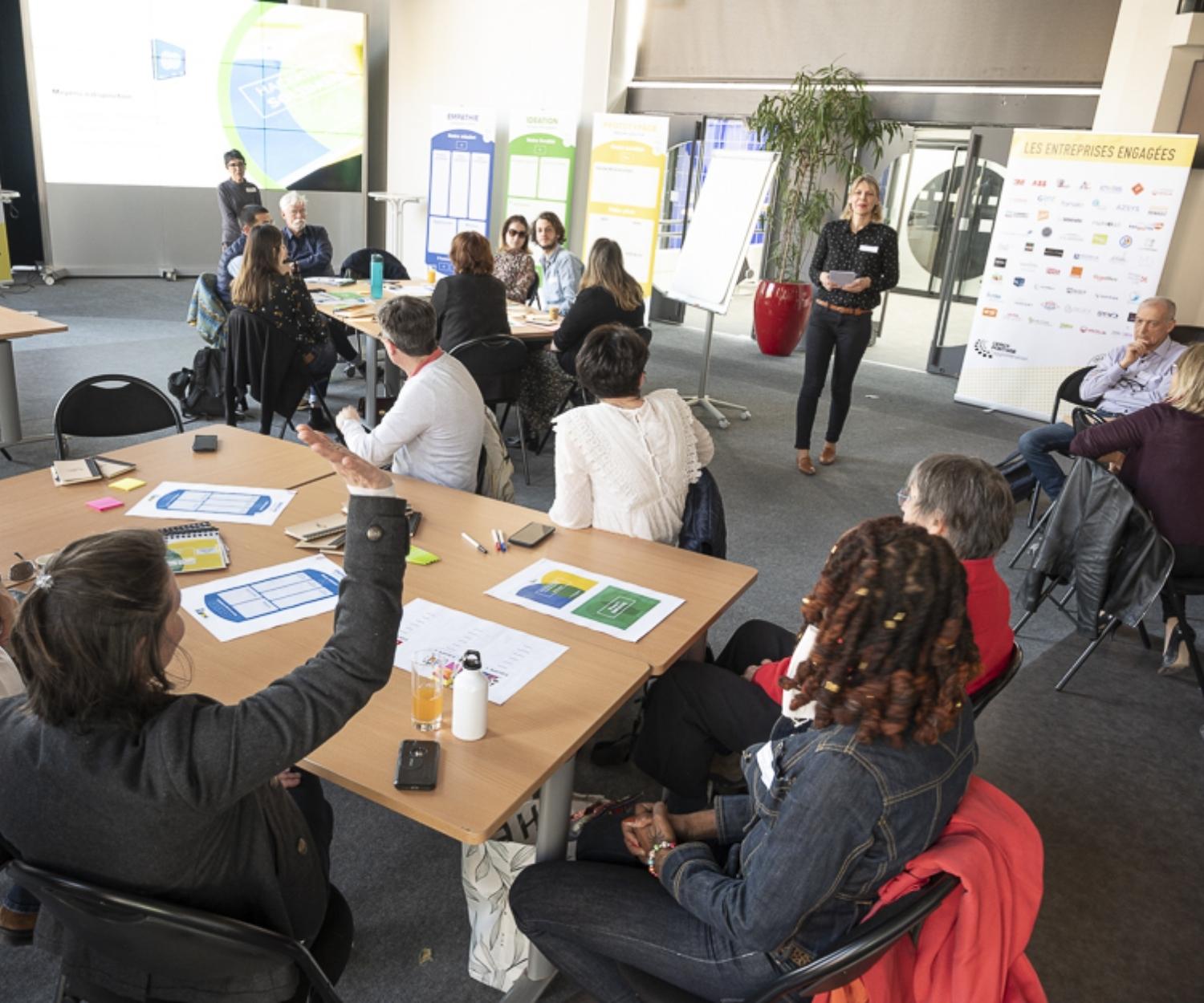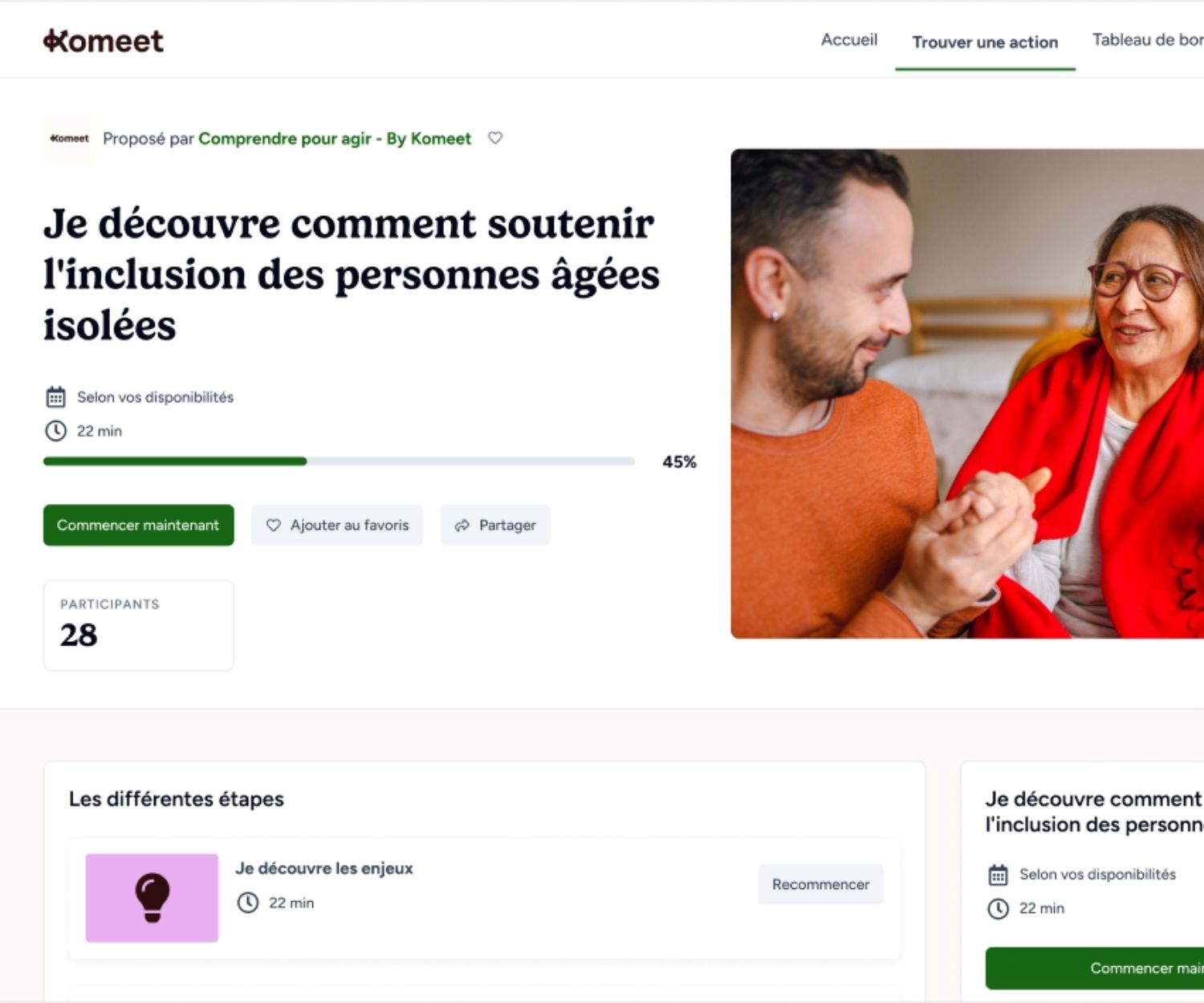Skills sponsorship: definition and specificities
With the growing importance of CSR in the face of current challenges, skills sponsorship is emerging as a powerful lever for combining social commitment and exploiting the potential of employees. Find out what it is!

With the growing importance of corporate social responsibility (CSR) in the face of current challenges, the skills sponsorship is emerging as a strategic lever, combining social commitment and valuing the potential of employees. It is a device that allows companies to highlight the skills of their employees at the service of organizations of general interest.
What is skills sponsorship?
Skills sponsorship is a form of solidarity commitment that allows companies to make the know-how and working time of their employees available to organizations of general interest. This system thus makes it possible to promote their assets and skills. It is governed by article L. 8241-2 of the Labor Code concerning the loan of labor on a non-profit basis.
Unlike financial or material sponsorship, which consists of donations of money or goods, skills sponsorship encompasses a wide range of contributions. Indeed, an employee can help in several ways:
- By developing technical tools;
- By carrying out administrative tasks;
- By supporting teams in the field through its participation in collections, meal distributions...
It is also possible to set up a program of skills sponsorship dedicated to the end of career. This allows a senior employee to work directly with an association over a period of up to 3 years.
Do you want to know more about skills sponsorship in order to launch a dedicated program in your company? Check out our guide”4 steps to a successful skills sponsorship program”.
What are the specificities of skills sponsorship?
Skills sponsorship has several distinct characteristics, offering advantages to companies, employees, and beneficiary associations at the same time.
Employee engagement during their working time
Skill sponsorship is different from volunteering in that contributions are made during the working hours of employees. This time is often paid for, and businesses can benefit from tax benefits in return.
Variety of inputs
Contributions are not limited to professional skills. Employees can also participate by providing their workforce for various missions, such as supporting events or logistics activities. This flexibility makes it possible to meet the varied needs of associations.
Positive impact on employees
By engaging in missions of general interest, employees develop new skills and strengthen their sense of belonging to the company. In addition, this type of sponsorship can also promote team cohesion and the personal development of employees by bringing meaning back to their daily lives.
Also to read:
Patronage, volunteering, mentoring: what are the differences?
10 examples of skills sponsorship missions to carry out with your company
What is a general interest organization?
General interest organizations are entities that work for social or environmental causes. non-profit.
They may include associations, foundations or NGOs that work in areas such as health, education, the environment or even helping people in difficulty.
In France, these organizations must be recognized as such in order to benefit from skills sponsorship and receive support in order to successfully carry out their projects.
Why implement skills sponsorship in your company?
For businesses, skills sponsorship is an opportunity to highlight their values while allowing their teams to have human and rewarding experiences. By offering their teams the opportunity to contribute to projects of general interest, they promote their motivation and loyalty.
For associations, skills sponsorship is valuable because it allows them to benefit fromsupport adapted to their needs, whether it's specific skills or more operational help. This system thus allows them to strengthen their capacity to act with their beneficiaries and to increase their social impact.
To go further: Skills sponsorship: tax exemption and legal framework
Skill sponsorship is therefore a versatile practice that offers mutual benefits to companies and associations.
Do you want to know more about skills sponsorship opportunities in business?
Contact the teams of Komeet to support you in setting up a solidarity project adapted to your business!




